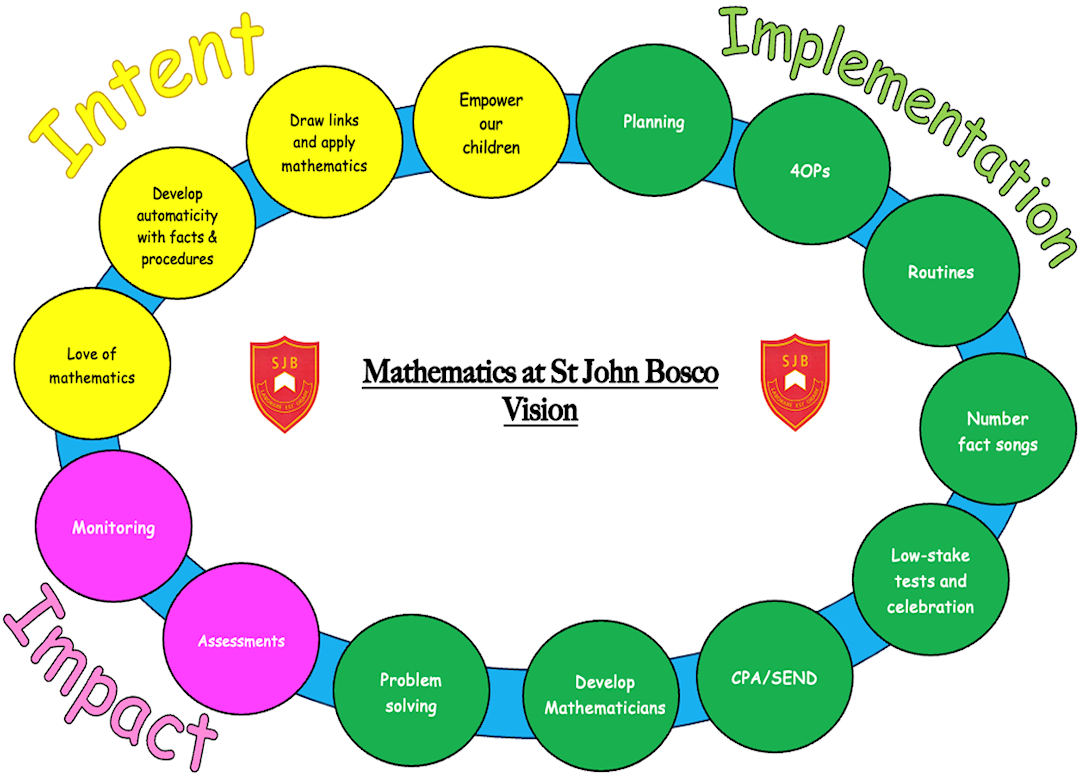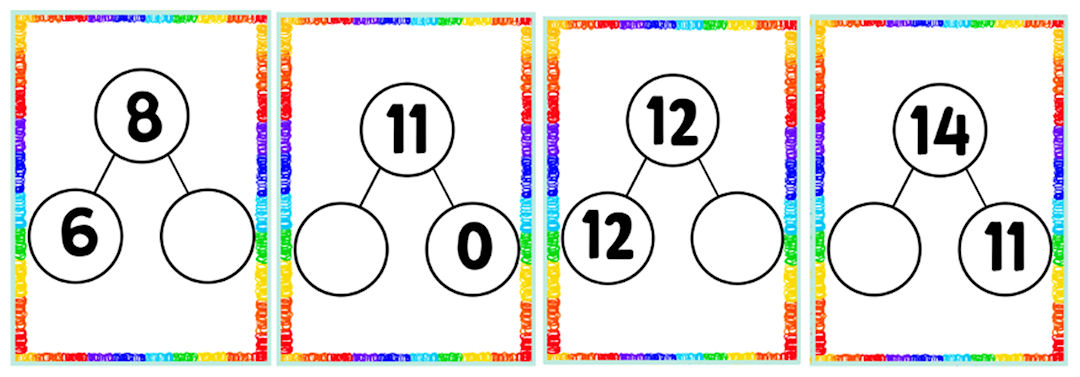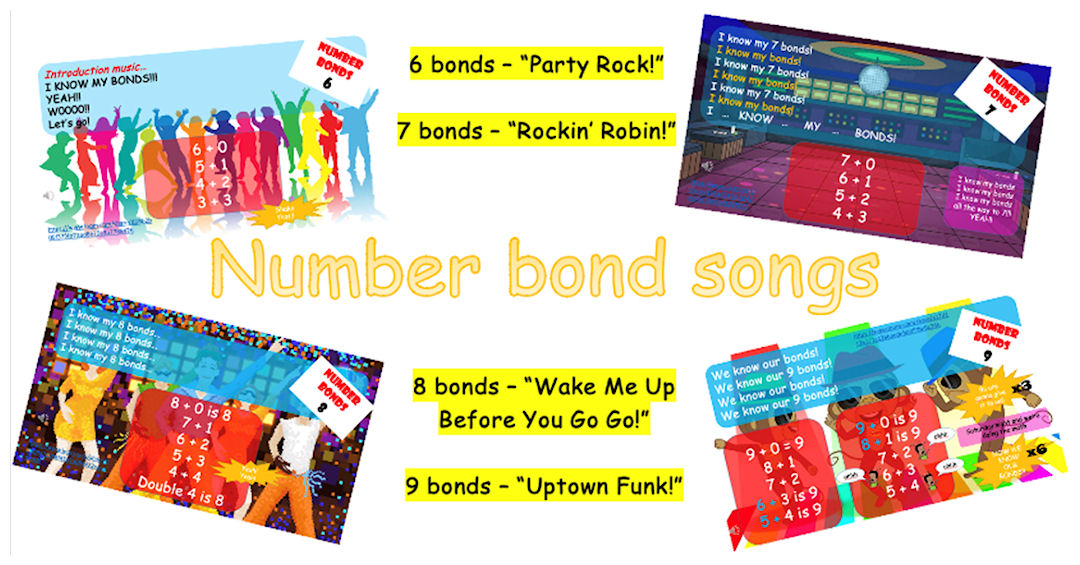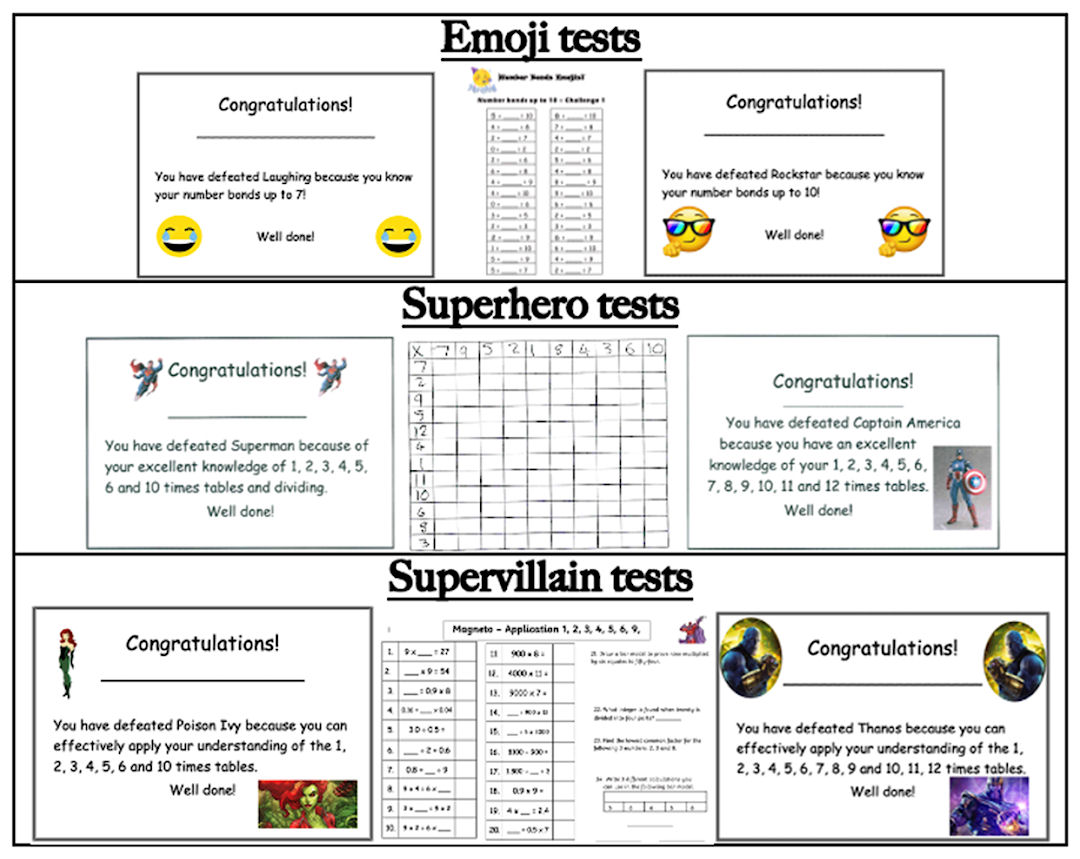Mathematics
Introduction
Here at St. John Bosco, we strive for excellence: excellence across all subjects, excellence in learning culture, excellence in empowerment.
Our mathematics curriculum embodies this message where nurturing a love of mathematics is at the heart, developing mathematicians who understand how to excel in maths is integral and endeavouring for all children to develop automaticity is the ultimate goal.
Our mission goes beyond primary school; our mission is to prepare each and every child for life.

Our comprehensive curriculum overview
Intent
At our school, our mathematics curriculum is designed with a clear intent: to instil in children a deep love for mathematics while equipping them with the essential skills for lifelong success.
We prioritise the development of automaticity with facts and procedures, ensuring that our children have a solid foundation upon which to build their mathematical understanding. Moreover, our curriculum encourages pupils to draw connections between mathematical concepts and apply their knowledge in real-world contexts, fostering critical thinking and problem-solving skills.
Above all, we empower children to take ownership of their mathematics learning journey, fostering independence confidence, and a lifelong passion for the subject.
Implementation
At our school, we take a research-backed and expertly planned approach to mathematics implementation, prioritising the development of arithmetic skills and essential facts. Our curriculum features a dedicated weekly 4-operation lesson, ensuring that children continuously reinforce their understanding of the foundational principles of mathematics throughout the year. This sustained focus allows our pupils to know more and remember more, laying a solid groundwork for future mathematical success.
In addition to regular lessons, our mathematical routines are designed to optimise learning and retention. These include engaging activities such as morning math work, daily 4-operation reviews, and prior knowledge questions (PK) to gauge children’s current understanding and adapt teaching accordingly. ‘Flashbacks’ and ‘hotlisting’ sessions provide opportunities for pupils to revisit previous learning and receive additional support as needed, ensuring that no child is left behind.

Our morning tasks consist of '1 minute maths', 'Fluent in 5' and TTRockstars

Our KS1 four operation review uses flashcards to practice number bonds
To make learning fun and memorable, we incorporate number fact songs, including times tables and number bonds, using popular nursery rhymes and classic tunes. Low-stakes tests with themes such as emojis for number bonds and superheroes/supervillains for times tables application further engage children and reinforce their knowledge.



Examples of our low stake number fact tests
Our teaching approach follows the Concrete, Pictorial, Abstract (CPA) method, providing multiple representations simultaneously to develop a strong mathematical understanding. This approach is detailed in our school Calculation Policy.
We believe in developing mathematicians, not just children, which is why we empower teachers, children and parents alike with knowledge organisers and child empowerment ‘How do I get better at Maths?’ poster to support learning both in and out of the classroom.
- Year 1 Maths Knowledge Organisers: Autumn | Spring | Summer
- Year 2 Maths Knowledge Organisers: Autumn | Spring | Summer
- Year 3 Maths Knowledge Organisers: Autumn | Spring | Summer
- Year 4 Maths Knowledge Organisers: Autumn | Spring | Summer
- Year 5 Maths Knowledge Organisers: Autumn | Spring | Summer
- Year 6 Maths Knowledge Organisers: Autumn | Spring | Summer
Once our children have mastered facts and procedures, we challenge them with problem-solving tasks to deepen their mathematical thinking and apply their skills in real-world contexts. By providing a well-rounded and engaging mathematics education, we prepare our children to excel both academically and beyond.
SEN
In mathematics, we use a number of evidence-based strategies to support children with SEN. Strategies include:
- Support for SEN children with learning vocabulary; this may include flash cards.
- Utilising visual aids and manipulatives.
- Games/songs to support vocabulary learning.
- Pupils will be given specific opportunities by adults to practise specific skills that are barriers to learning.
- Tasks may be ‘chunked’ into smaller steps.
- Vocabulary prompts may be used to support sentence work.
- Depending on ability, children with SEN may be asked to evaluate their own progress and discuss what they can do to move their learning forward.
- Small groups may be used to support learning a particular concept.
- Pre-teaching and support with new vocabulary may be used.
- Engaging with math games and role play.
- Educational videos.
- Stories.
Impact
Learning
Our maths curriculum is designed to cultivate a profound impact on children’s mathematical journey, ensuring they acquire not only awareness but also automaticity in mathematical facts and their practical application. Through systematic learning experiences, pupils develop a deep understanding and strong foundational knowledge in each maths strand. This foundation serves as the bedrock upon which they build their mathematical proficiency, empowering them with a robust arithmetic skill set essential for tackling complex problems.
Moreover, our curriculum fosters adaptive thinking and reasoning skills, enabling children to utilise their knowledge flexibly in diverse problem-solving scenarios. By encouraging exploration and experimentation, our children learn to approach challenges with confidence and creativity, honing their ability to devise innovative solutions. As they progress through their learning journey, culminating at the end of Key Stage 2, pupils emerge equipped with a solid base of mathematics that prepares them for the transition to high school and beyond.
Ultimately, our maths curriculum aims to empower children with the essential skills and knowledge they need to thrive in an increasingly complex world. By instilling a deep-rooted understanding, fostering critical thinking, and nurturing problem-solving abilities, we ensure that pupils are well-prepared for the challenges and opportunities that lie ahead in their academic and personal lives.
Assessment
At the end of each unit in our maths curriculum, we employ end of unit assessments to gauge the extent of children’s retained knowledge, as well as their proficiency in applying and reasoning during problem-solving tasks. These end-of-unit tests serve as valuable checkpoints, allowing us to identify areas where children may require additional support or revisit content to ensure they “know more and remember more.” Following these assessments, the subsequent lesson, aptly termed the ‘follow-up lesson,’ is dedicated to revisiting any concepts or skills that children may have struggled to grasp fully. This iterative approach not only reinforces learning but also addresses any gaps, fostering a more thorough understanding and retention of mathematical concepts.
Additionally, our end-of-term assessments provide a holistic overview of children’s learning and problem-solving abilities, offering valuable insights that inform future teaching strategies for the subsequent term. By analysing the results of these assessments, we can tailor our teaching approaches to address specific areas of need and adapt our curriculum to ensure optimal progression for all children. Furthermore, these assessments play a pivotal role in identifying pupils who may benefit from targeted interventions or pre-teaching initiatives, enabling us to provide personalised support and ensure every child reaches their full potential in mathematics.

